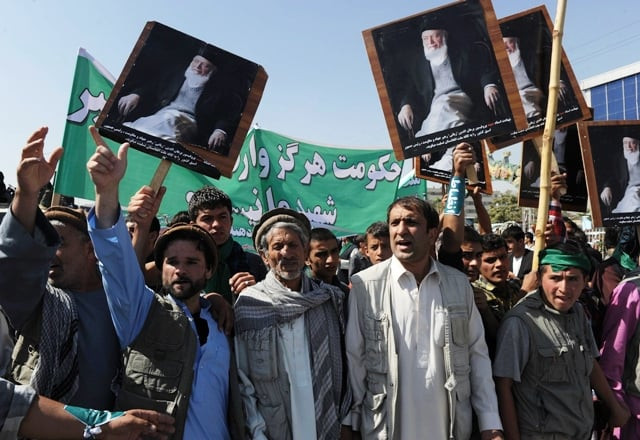Investigating the killing of Burhanuddin Rabbani
Kabul has to meditate whether it suited Pakistan to get rid of Rabbani and how his death has benefited Islamabad.

Pakistan’s answer is denial, a routine answer to accusations made by the Afghan government, the Isaf-Nato forces, and sundry field researchers fingering Pakistan as the mastermind of chaos in Afghanistan. The latest accusation, too, has been denied by the Pakistan Foreign Office which said it was a “baseless allegation”, relying based on an accused person’s testimony and calling Rabbani, perhaps excessively, “a martyr and a great friend who lived in Pakistan for a long time and had many friends here”. This time, however, relations between Pakistan and the US on the one hand, and by reflection those with the Afghan government on the other hand, are not so good; hence President Karzai’s palace adding its weight behind the accusation. Both sides need to think again. Kabul has to meditate whether it suited Pakistan to get rid of Rabbani and how his death has benefited Islamabad. On the other hand, any accusation involving “killers that came from Pakistan” has to be understood correctly by Pakistan before issuing a denial. If Kabul says the killing was plotted in Quetta and the killers too came from Pakistan, it is an understandable attribution because anything which happens in Pakistani territory is within the ambit of Pakistan’s administrative outreach and makes it liable. But facts on the ground have belied Pakistan’s administrative hold on its territory time and again. Given this condition, should Pakistan aggressively state that the accusation is a “baseless allegation”, as in should it not, at the very least, investigate the allegation?
For all practical purposes, Quetta is without a normal writ of the state. Killers seem roam its environs and people they don’t like, like the Hazara Shia, are killed with impunity. Journalists have gone to Quetta and testified that an Afghan Shura is present there. Once the Afghan government even gave addresses and telephone numbers but Pakistan responded by proving them to be false. The entire world knows that Pakistani writ runs but thinly in Balochistan and that it is home to a million-plus Afghan refugees including the Taliban and such homegrown terrorists as Lashkar-e-Jhangvi.
Pakistan’s ex-foreign secretary Riaz Muhammad Khan recently spoke more realistically about what Rabbani meant to Pakistan: “He played his hand masterfully in early 1992, when the Najibullah regime crumbled, to facilitate the entry of his ally Ahmed Shah Massoud in Kabul who had already succeeded in winning over key Parchami generals controlling the city. Rabbani manoeuvred to give the strategic defence portfolio to his party, Jamiat-e-Islami, and ensured that the position of prime minister did not go to Massoud’s archrival, Gulbuddin Hekmatyar.” The Taliban — backed by Pakistan — took down the Rabbani-led government in 1996 and he had to flee to Badakhshan province in Afghanistan’s far northeast. A year earlier, Rabbani’s warlord Ahmad Shah Massoud had attacked Pakistan embassy in Kabul, killing one person he took for the ambassador. Massoud withdrew to Panjshir and the Indian embassy in Kabul closed down. It returned pointedly after an international force attacked Afghanistan and made Mullah Omar go on the run in 2001.
Pakistan’s problems are three: 1) It doesn’t control its territory where foreign and local terrorists have their safe havens; 2) It cannot control the actions of these terrorists either inside Pakistan or across the border in other countries; and 3) it is completely isolated internationally when it comes to the credibility of the ‘denial’ postures it adopts when accused of terrorism from inside its territory. So, the strategy of responding to such accusations has to be changed, so that we are not pushed further down the abyss of isolationism.
Published in The Express Tribune, October 4th, 2011.















COMMENTS
Comments are moderated and generally will be posted if they are on-topic and not abusive.
For more information, please see our Comments FAQ